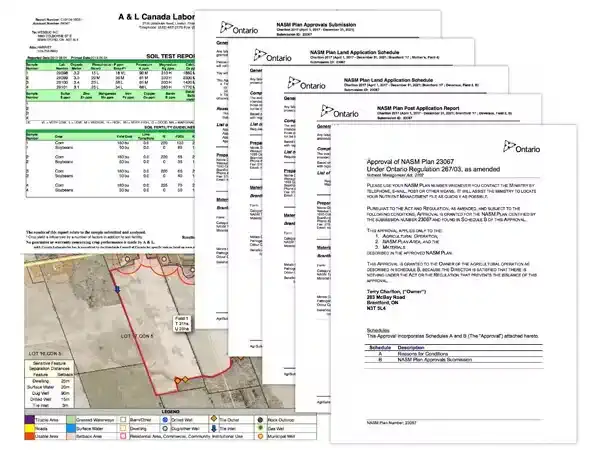Nutrient management. Your soil’s dietitian.
Nutrient planning is like having a smart plan for plant food. It makes sure plants get exactly what they need when and where it’s needed most without wasting resources or harming nature. Imagine farmers, food processors, and government working together to use plant nutrients in the best way possible: not too much (which saves money), but enough for crops to thrive; applied at just the right time during plant growth stages; and precisely where plants need it (right at their roots). This approach is a big deal, helping farmers increase their yeilds while caring for the environment.
 +1 519 752 0837
+1 519 752 0837


